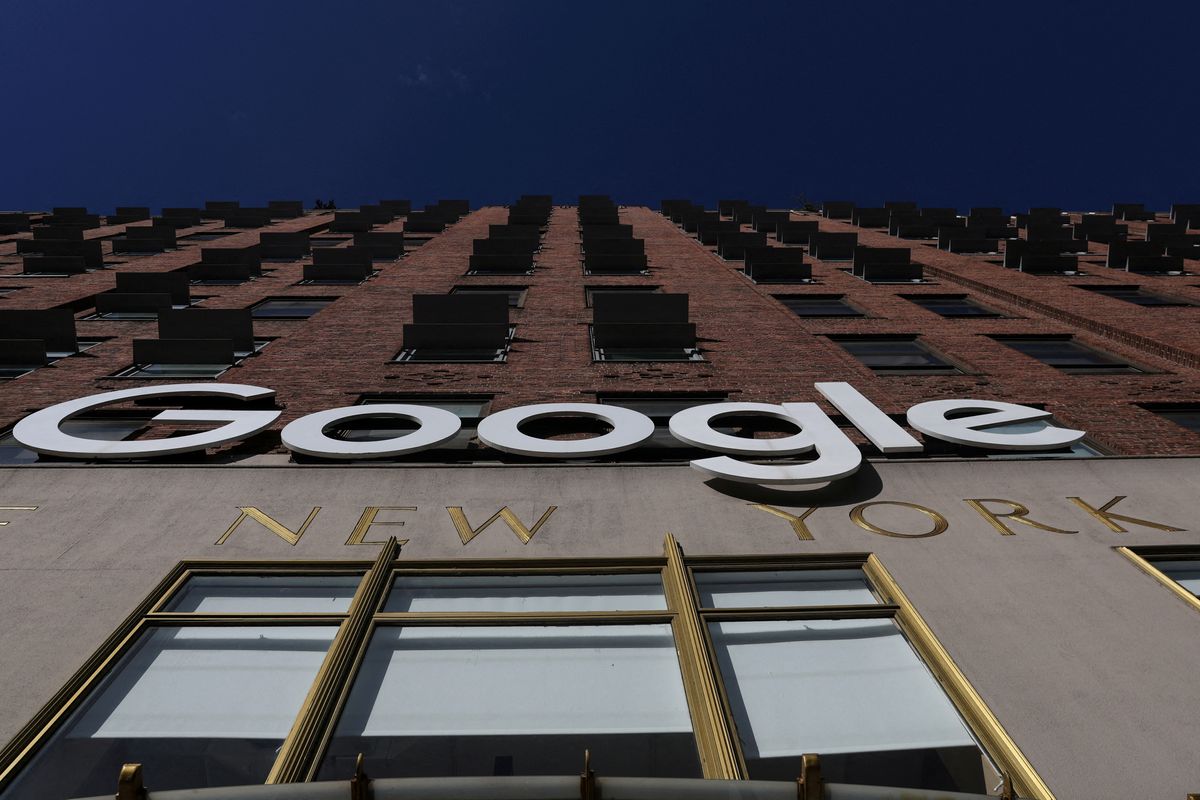A closer look at the recent executive transitions within Google
In a series of strategic shifts, Google has seen significant exec departures from its upper ranks.

A few minutes every morning is all you need.
Stay up to date on the world's Headlines and Human Stories. It's fun, it's factual, it's fluff-free.
The backstory: Back in 2016, Google set a new trajectory with its "AI-first" strategy, aiming to stay at the forefront of tech innovation. A year before, the company had an internal restructuring, giving birth to Alphabet, its parent company. This move aimed to streamline Google's core operations while offering distinct avenues of growth for its various ventures from driverless cars to glucose-monitoring contact lenses.
Post-restructuring, Alphabet doubled down on its investments in artificial intelligence (AI) across sectors like farming, health and education. Google AI became the hub for next-gen tech like deep learning and voice and image recognition. These innovations seamlessly became part of Google's services and the Android operating system.
This approach also led to the creation of AI research centers worldwide in countries including Japan, France and the US. Google even acquired DeepMind, a UK-based AI firm, in 2014. DeepMind's research improved Google Assistant's voice quality and optimized energy usage in data centers, cutting down power use by 30% on average.
More recently: Fast forward to last year, when OpenAI's chatbot, ChatGPT, became a strong contender against Google's search dominance. This happened around the same time as changes in Google's core team and some big shots leaving.
The development: In a series of strategic shifts, Google has seen significant exec departures from its upper ranks. Let's break it down:
- In January, Robert Kyncl, who was the chief business officer at YouTube for over a decade, waved goodbye to Google and took the reins at Warner Music Group.
- February brought a bombshell when Susan Wojcicki, a major name in Silicon Valley, stepped down as CEO of YouTube after nine years, marking the end of a nearly 25-year association with Google.
- March saw David Lawee, a 17-year Google veteran, bid farewell to try new things and spend more time with his family.
- July shook things up again when Urs Hölzle, one of Google's earliest employees and technical framework guru, decided to go solo after 24 years of leading company teams. At the same time, Ruth Porat, who'd been the CFO at Alphabet for eight years, switched gears and took on the role of president and chief investment officer, leading technology and policy engagement.
In the middle of all this, some big names in the AI world left Google. Geoffrey Hinton, aka "The godfather of AI," who worked part-time at the tech giant said his goodbyes in May to be able to speak more freely about the dangers of AI.
Key comments:
“We have a steady and experienced leadership team, many of whom have been with the company for well over a decade,” said Google spokesperson Courtenay Mencini in a statement about the shifts. “We also have a strong bench of leaders at Google who can smoothly transition when people who’ve had long and successful careers here decide to pursue new opportunities inside and outside the company.”
“I have left Google understanding how a once-great company has slowly ceased to function,” wrote former Google employee Praveen Seshadri in a blog post earlier this year.
“As our longest serving CFO, she has helped guide the company though an amazing period of growth, a global pandemic and the ongoing economic uncertainty that has followed,” said Alphabet CEO Sundar Pichai to investors about Ruth Porat in July. “It’s business as usual for now and no change in approach for the future,” he added.




Comments ()